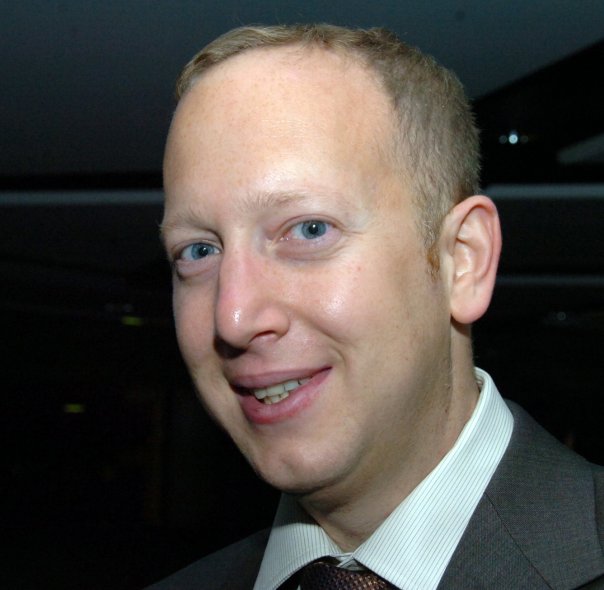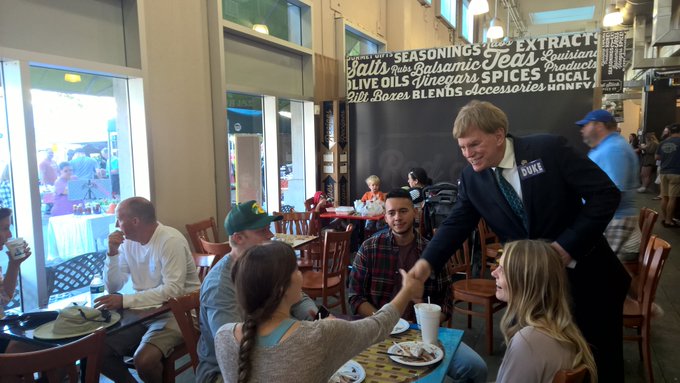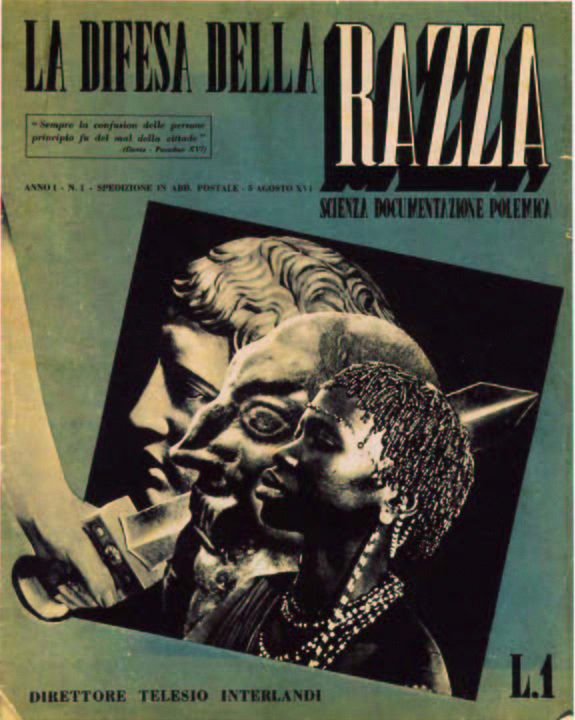Actors George Clooney and Julia Roberts have now joined an illustrious group of starring actors in an ongoing disinformation campaign. Look at the company they join: Leonardo DiCaprio, John Travolta, Brad Pitt, Richard Gere, Susan Sarandon, Tim Roth, Jeremy Irons, Kevin Spacey, Danny DeVito, Gregory Peck, Ryan Gosling, Christian Bale and Steve Carell.
Their role: To conceal the facts about massive Jewish involvement in Wall Street finance — including immense malfeasance and endless instances of shady practices. Not only does Hollywood conceal these facts, it also projects them onto innocent actual Whites. Consistently.
In Money Monster (2016), Clooney plays Lee Gates, the slick and jaded host of a TV financial advice show of the same name. Gates plugs a company which mysteriously loses $800 million, and many investors are ruined — including one who arrives at the studio and takes Gates hostage with an explosive vest.
And talk about delicious serendipity! Though written long before Trump emerged as a serious challenger to the corrupt status quo in American politics, the film has the hostage taker voicing outrage over financial and media corruption that almost perfectly parallels what Trump has often thundered, including recently at a West Palm Beach campaign rally.
I’ve written far too many TOO columns about Jewish deception and Hollywood’s role in hiding incredible financial theft to list them here. For that matter, I’ve written far too much in my long essays for The Occidental Quarterly about Jewish control of Hollywood to repeat them either. Just start clicking on links and you’ll find all of this. Thus, the present essay will assume you know something about my previous writing.
Still, I’ll briefly run through my argument. First, Jews run Hollywood. It is indeed an empire of their own. Second, Jews throughout modern history have been involved in immense financial scandals, reaching truly astonishing proportions in the last half century. Third, Jews use their Hollywood propaganda machine to obscure these facts. Case in point: This is the sixth major film I’ve reviewed that advances the deception about the Jewish role in financial skullduggery. As I’ve said, this is an explicit disinformation campaign.
Okay, let’s get on with a reading of this year’s Money Monster.
George Clooney as Lee Gates is in the middle of one of his shows, with Julia Roberts’ character directing him from a darkened booth. Suddenly, our hostage taker arrives on stage disguised as a delivery man and soon raps an explosive vest around the startled Gates. The police are called, etc. etc.
The hostage taker is one Kyle Budwell (played by Anglo-Irish actor Jack O’Connell). Budwell is mentally challenged, as shown by his speech and childish behavior. For example, when his mother died and left him $60,000, he invested the whole amount in a company named IBIS, after Gates on a previous show highly recommended the stock. Budwell aims for revenge against Gates for his poor advice and against the CEO of IBIS, Walt Camby.
Amidst the usual Hollywood drama comes a scene where Budwell’s pregnant girlfriend is located and whisked to the set to talk Budwell out of his suicidal plan. Instead, she learns how her boyfriend lost all of their money and launches a blistering verbal assault, knocking him down about as far as a man can go. (It comes across as an apt one-minute microcosm of current relations between the sexes in America.) Remarkably, Budwell doesn’t shoot anyone then.
In the meantime, people are busy behind the scenes finding out where CEO Camby is. It turns out that he made a secret trip to South Africa to advance his scheme to temporarily employ $800 million from his company to make a killing on a certain mining stock. The deal, unfortunately, falls through and the money is gone. This is then blamed on a “computer glitch” linked to sophisticated trading algorithms, but Budwell isn’t buying it. For that matter, Gates is becoming suspicious, as well as the head of PR at IBIS.
Gates by this time has begun to feel growing sympathy for Budwell, the explosive-laden necklace notwithstanding.
Cutting to the chase, we follow Gates and Budwell as they march through the streets of Manhattan in their quest to confront Camby face to face. Since Camby is responsible for the missing money, a look at his image and identity is helpful. In short, he ain’t Jewish.
Wikipedia informs us that
“[Dominic] West was born and brought up in Sheffield, West Riding of Yorkshire, the sixth of seven siblings (five girls and two boys) in a Roman Catholic family, largely of Irish descent.”
As I keep saying, Hollywood consistently distracts its audience’s attention away from the far, far more likely ethnicity of the culprits in financial crime: Jews. Dig up TOO columns on the topic, where you can find at least thirty-one essays in the archive under Jews in Economy/Finance.
Still, despite its obvious deception, Money Monster is instructive in a way. For those who understand which group is really culpable, a soliloquy by Budwell explains their offenses:
I want everyone to know something. I might be the one with the gun here, but I’m not the real criminal. It’s people like these guys! [pointing to Gates and the set crew]. They’re stealing everything from us and they’re getting away with it, too. Nobody’s asking how. Nobody’s asking why.
You got to open your eyes out there. It’s not like the government’s no help. How they just look the other way, since after they’re done stealing our money, they barely even have to pay any taxes on it! I’m telling you, it’s rigged. The whole goddamn thing. They’re stealing the country out from under us. Not the Muslims. Not the Chinese. Them.
It’s all fixed. They like how the math adds up, so they got to keep rewriting the equation. Which means, the one time you finally get a little extra money, you try and be smart about it, you turn on the TV. Boom. That’s how they fucking take it. They take it so fast they don’t even have to explain it! They literally own the airwaves. They literally control the information.
There’s a lot to unpack here. First, watching the film, we see that Budwell is blaming people like Gates, CEO Camby and those like them. But if you replace “they” and “them” with “Jews,” his speech is instructive indeed. Is it rigged? Well, anyone reading accounts of the trading patterns of Goldman Sachs, for one, will agree with that. Just Google it — you’ll get about 800,000 hits.
Also informative about Goldman Sachs is Budwell’s claim, “They take it so fast they don’t even have to explain it!” Many of us still remember the charges laid against Goldman in this respect. In brief:
While the SEC is busy investigating Goldman Sachs, it might want to look into another Goldman-dominated fraud: computerized front running using high-frequency trading programs. . . .
[Called] High Frequency Trading (HFT) or “black box trading,” automated program trading uses high-speed computers governed by complex algorithms (instructions to the computer) to analyze data and transact orders in massive quantities at very high speeds. Like the poker player peeking in a mirror to see his opponent’s cards, HFT allows the program trader to peek at major incoming orders and jump in front of them to skim profits off the top. And these large institutional orders are our money — our pension funds, mutual funds, and 401Ks.
And the government won’t help? Go back and read my review of The Big Short, particularly my account of
how in 1989 and 1993, financial instruments that later played a central role in the meltdown of 2008–9 were exempted from government oversight. For instance, [Alan] Greenspan was adamant about getting the government out of the way. “In fact, Greenspan largely halted the Fed’s active oversight of the banking industry.” Joined by Treasury Secretary Robert Rubin and his successor Lawrence Summers, “the three mounted an aggressive campaign to halt any efforts to regulate trading of new derivative instruments.”
When measures to impose constraints on these risky trades were being considered, Greenspan, Rubin, and Summers pointedly blocked them. Also, when Brooksley Born, Chairwoman of the Commodity Futures Trading Commission attempted to do her job, Summers aggressively attacked her actions. Right on cue, Greenspan, Rubin and Arthur Levitt of the Securities and Exchange Commission pressured Congress to straightjacket Born.
This bullying of Born persisted into 2000, as Greenspan continued to insist that Wall Street should be trusted and left to its own devices. “With those assurances, Congress went ahead and stripped the CFTC of responsibility for derivatives, and President Clinton signed the bill into law in December 2000.” Meanwhile, Ms. Born quietly left government service.
And I liked Budwell’s explicit lines that it’s “Not the Muslims. Not the Chinese.” Yes, he’s right. We know who it is.
I think what made the most pointed sense to me was Budwell’s linking of financial deceit with the power to create the reality we see and hear: “They literally own the airwaves. They literally control the information.” This has been a key point others and I on TOO have made for years: Jews have immense media control all through the West. And it’s killing us.
What I’ve discussed so far is enough to make my case about Hollywood films deceiving us about identity of the real culprits in money crimes. What really astounds me, however, are the recent claims by Donald Trump that so closely mirror what Budwell speaks. And it seems Jews themselves agree that what Trump means when he says all this is: “Jews.”
In his October 14th speech, Trump charged Hillary Clinton with, as NPR reported, “meeting in secret with international banks to plot the destruction of U.S. sovereignty.” NPR used a soundbite from Trump to show whom he was attacking:
DONALD TRUMP: … In order to enrich these global financial powers, her special-interest friends and her donors.
[NPR host] GJELTEN: Not a word there about Jews — but some writers pointed out that the reference to international bankers undermining national sovereignty had parallels with classic anti-Semitic propaganda.
TOO editor Kevin MacDonald clearly saw this point as well, writing that “Jewish activists were horrified, claiming any mention of secret meetings with international banks should be banned because such talk is historically linked to anti-Semitism.”
My main point, however, is how closely Trump’s words parallel Budwell’s:
This election will determine whether we are a free nation or whether we have only the illusion of democracy, but are in fact controlled by a small handful of global special interests rigging the system, and our system is rigged. This is reality, you know it, they know it, I know it, and pretty much the whole world knows it” [emphasis added].
Clearly, this sentiment is thick in the air now. Pat Buchanan, for one, just voiced the same fears, writing:
The establishment is horrified at the Donald’s defiance because, deep within its soul, it fears that the people for whom Trump speaks no longer accept its political legitimacy or moral authority.
It may rule and run the country, and may rig the system through mass immigration and a mammoth welfare state so that Middle America is never again able to elect one of its own. But that establishment, disconnected from the people it rules, senses, rightly, that it is unloved and even detested.
Returning to Trump, he, like our hostage-taker Budwell, is aware of the special role of the media:
The establishment and their media enablers will [wield?] control over this nation through means that are very well known. Anyone who challenges their control is deemed a sexist, a racist, a xenophobe, and morally deformed.
In an essay this month, MacDonald took this charge to its logical conclusion, writing that “We at TOO have made no secret on the role of Jews in the media (summarized briefly here and more extensively here, pp. xlvi-lvi).”
Now watch Budwell perform his speech about those who rig the system. It is so easy for me to envision the exact same tone and fury when Trump launches his attack on the hostile elite ruling over us now:
They will attack you, they will slander you, they will seek to destroy your career and your family, they will seek to destroy everything about you, including your reputation. They will lie, lie, lie, and then again they will do worse than that, they will do whatever is necessary.
I really think I’m on to something with these readings of Hollywood films that whitewash Jews out of questionable or criminal financial activity. Instead, the blame is laid on real Whites, who are, in fact, the victims (including Budwell in the film).
I’ll close with quotes from my previous essays on this theme, for the quotes are as pertinent as ever. In my review of Richard Gere in Arbitrage, for instance, I noted how former Counter-Currents writer Andrew Hamilton wrote about hedge fund managers:
More often than not the privileged Jews turn around and use the vast wealth they’ve skimmed from the productive sector of the economy to advance anti-White, pro-Jewish, and Left-wing causes, thereby harming America and the world in two ways — economically through callous and shortsighted market operations, and politically through their “philanthropy” and lavish political donations. George Soros has done enormous harm to Whites worldwide in this manner. . . .
Hamilton specifically noted the shocking wealth concentrated in such hands, referring to Forbes Magazine’s recent ranking of the richest hedge fund managers in the United States by estimated personal net worth: “Twenty-four of the 32 names on the list (75%) are Jewish. Of the 10 wealthiest, 8 (80%) are Jewish.”
I’ll ask again: Does it matter that Jews run Hollywood? Of course it does. I’m in total agreement with what our editor Kevin MacDonald concluded on the topic: “It matters a lot that Jews Run Hollywood.” Concealing Jewish identity when it could hurt Jews but help Gentiles is just one facet of how control of the medium of film puts Whites at a severe disadvantage. We at TOO do our best to neutralize this power, however.
Readers, time grows short. Trump may or may not win. We need more than ever to name the Tribe attacking us. Money Monster helps a bit when the viewer understands how to read the grammar of the film, just as Jews rightly understand who Trump is attacking. Help others to realize what the hints, wink-winks, and allusions mean.
Finally, always keep in the fore of your consciousness what Greg Johnson of Counter-Currents so accurately summed up:
Jews, of course, more than any other people, are aware of the necessary conditions of collective survival. They are concerned to secure these conditions for their own people even as they deny them to us. The obvious conclusion is that they mean for us not to survive as a people. America is being corrupted, exploited, degraded, and murdered by the organized Jewish community.
Friends, a full generation ago a character named Howard Beale made a furious plea to average Americans, a plea to say no to the degradation and crime of that era. Now it is Kyle Budwell making a plea for our generation — and by some fluke, Donald Trump is proclaiming the same message with the same sense of inner rage. Now let’s cultivate that righteous rage to the max.
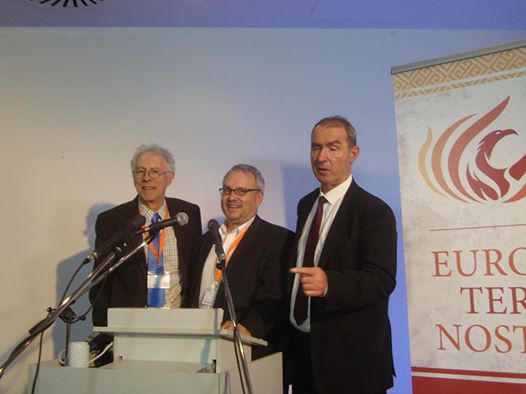

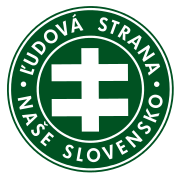 The contingent from Kotleba (People’s Party — Our Slovakia) were also very optimistic about the future. Dr. Milan Uhrik, MEP and vice-chairman of the party talked about the success of the party in obtaining 14 of the 150 seats in the National Council, the Slovak Parliament, noting that the ongoing disaster in Western Europe is making nationalist ideas more attractive. William Johnson, Chair of the American Freedom Party, gave a brief presentation on the AFP’s activities in the current election.
The contingent from Kotleba (People’s Party — Our Slovakia) were also very optimistic about the future. Dr. Milan Uhrik, MEP and vice-chairman of the party talked about the success of the party in obtaining 14 of the 150 seats in the National Council, the Slovak Parliament, noting that the ongoing disaster in Western Europe is making nationalist ideas more attractive. William Johnson, Chair of the American Freedom Party, gave a brief presentation on the AFP’s activities in the current election.

